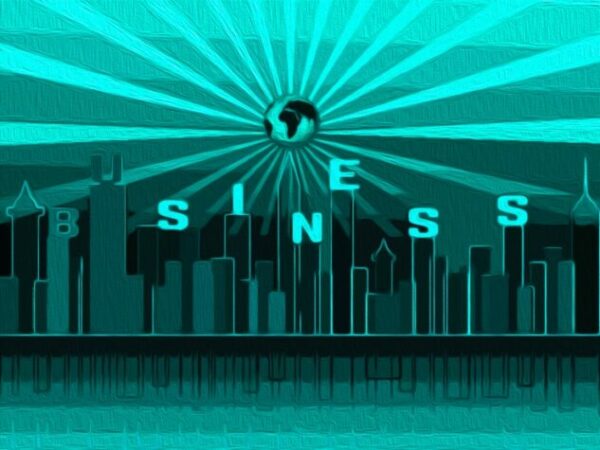[TAG0][TAG1]
Anyone who has driven by a Tesla Supercharger and felt British Racing Green envy, whether they own a Chevy Bolt or a Mustang Mach-E, must be feeling pretty happy right now. Ford and GM both announced last week that they have signed deals to gain access to Tesla North American Charging System. This system is now being incorporated into a standard industry-wide for charging electric vehicles. Tesla's NACS charging system is lightning fast compared to most public charging networks that use slower "Level 2-" chargers. It offers 20,000 plugs in nearly 1,800 stations across the United States.
This doesn't explain why Tesla decided to open up its previously walled-off garden of Superchargers. Early reports indicate that GM and Ford don't pay for access. The federal government has already included Tesla's standard as part of its $7.5 billion program designed to encourage the build-out of charger networks. Tesla CEO Elon Musk responded to President Joe Biden’s announcement by tweeting: "Tesla will support other EVs through our Supercharger Network." Why would the most valuable automaker in the world give something away for free that makes it different from other car companies?
You can find the answer by looking into the end of the sleek NACS charger. The three larger holes on the charger are for electrical connections. The two smaller holes are actually data ports. Tesla is known for using cellular and wifi to collect data, which one report called "a hoard", about its cars and their users. This includes tracking everything from how efficient the brake system is to the frequency of AC use by drivers. The ports on the chargers also collect more data. By allowing Ford and GM to plug into their chargers, Tesla could also be able snoop on data from rival cars. This would give Tesla a competitive advantage in the automotive industry, but also provide it with valuable data that it could commoditize. It seems to me that the real power in these new charging agreements is not the electrons. The bits are the real power.
Chargers are more than just chargers
Gas pumps don't have to know much more than if the car has gas in its tank. Five minutes of liquid flow and all that's left is the credit card number and benzene aroma.
Charging electric vehicles is a different matter. The key to the success of electric cars is the ability to maintain the health and efficiency of lithium-ion battery stacks. It's an intricate system, but the basic communication is between the car's battery management system and the source of the power. It's sometimes a matter of being careful not to draw more amps than the household line can provide. Faster charging with direct current required more complex technology so that the vehicle and charger could communicate about the battery needs. This meant adding some handshake identification information and cybersecurity protocol. The Combined Charging System is used by almost every automaker except Tesla. It has plugs to accommodate all of that, making it cumbersome and difficult to use.
Tesla developed a more streamlined method. Its charge-carrying pins can handle alternating or direct current, and it includes both a "proximity pilot" for the dumber hi-I-am-here-what-flavor-of-electricity-do-you-need information, and a "control pilot" that can digitally convey all sorts of other information about the car and its driver. This "plug and charge" method is even easier to use than a gas station. Tesla also gains a lot of data about its users every time they recharge.
Analysts I spoke to said that the company would almost certainly be able pull data from other EVs as Fords, Buicks, Chryslers, and Volvos plug into Tesla's chargers. It will first collect information on the charge rate and state of the batteries of cars. By combining this data with the credit card information of the driver and the Vehicle Identification Number of the car, Tesla can perform an ultrasound-like test on the battery performance of its competitors.
Mike Ramsey, automotive analyst at Gartner, says: "I suspect both Ford and GM are using ways to prevent Tesla directly harvesting ownership data." But Tesla could probably find it using other methods. "The data is mostly used by Tesla for competitive intelligence."
It's possible to derive a lot of information from even the most basic of charging station information — such as how much power I need and what the best method is to provide it — especially if it's combined together with sociodemographic information about the owner of the vehicle based on the payment information. It shows you how battery stacks behave over time and what different usage patterns have on them. You can even plan the load for the entire grid by using this information.
Tesla could also get more information from its competitors by tapping into the battery management systems of their vehicles. Ford and GM systems, like Tesla's, are connected to a network which connects the battery management system, engine control unit and more. Samrat Acharya is a researcher who studies EV cybersecurity. "If you can access the battery management system and if you want to really get into, say, the engine control system, then it's not superhard," he says.
Tesla's future
It's not about technical secrets. Ford knows almost certainly how Tesla works, and Tesla knows how Ford works. Reverse engineering is all it takes. Add to that the amount of data that could be collected by charging plugs and the way that it changes over time and you might have something very useful. Elon Musk is a data-driven man. Tesla's communication staff did not respond to my questions, but I know he values it. He's said that data is the key to self driving in Teslas. He's started charging researchers to access data on Twitter. And he relies on data collected from early Neuralink customers to make his chips easier to use. Big Data is the biggest thing in Silicon Valley for Musk and many others.
As other automakers build their own NACS network, they will be able steal similar data from Teslas. Fair play. Tesla is the only one that works with data in this way. Tesla owners are more willing to give in to Big Brother's demands than Ford or GM owners. They treat Tesla as a trusted older sibling and allow it to collect data about them each time they turn on their engine.
Years ago, there were jokes that Tesla was a carbon credit company pretending to a car manufacturer. It looked for a time like it was going to be an auto insurance company pretending it was a car manufacturer. Now, I believe it will be a data firm — and that may be what keeps it afloat.
Tesla has been using data from its users to improve its software for self-driving cars, but with limited success. The addition of battery data from competitors may help Tesla improve its batteries and, therefore, the range of their cars. This is the main competitive advantage of electric vehicles. The market for automotive data has also proven to be large and lucrative. According to The Markup there are currently three dozen companies operating in an area that could be worth up to $800 billion at the end of this decade.
That's only the beginning. According to the analysts I spoke with, data about EV batteries may open up an entirely new market: electric utilities. The demand for electricity increases when electric vehicles are fast charged. Managing the grid now requires mathematical models and publicly available data. Tesla's data could be key in determining where and when drivers need electricity — and where new charging stations can be built most profitably, regardless of who builds them. This could be more lucrative in the end than building and marketing cars. Tesla hasn't launched a new car since 2020, despite its splashy announcements about expanding into trucks and creating a roadster. If you get the data right, it may not be necessary.
Adam Rogers , is a senior reporter at Insider.
—————————————————————————————————————————————
By: arogers@insider.com (Adam Rogers)
Title: Elon Musk’s secret game plan for Tesla
Sourced From: www.businessinsider.com/tesla-ford-gm-volvo-supercharger-electric-cars-charger-network-data-2023-7
Published Date: Thu, 06 Jul 2023 09:23:00 +0000





Leave a Reply